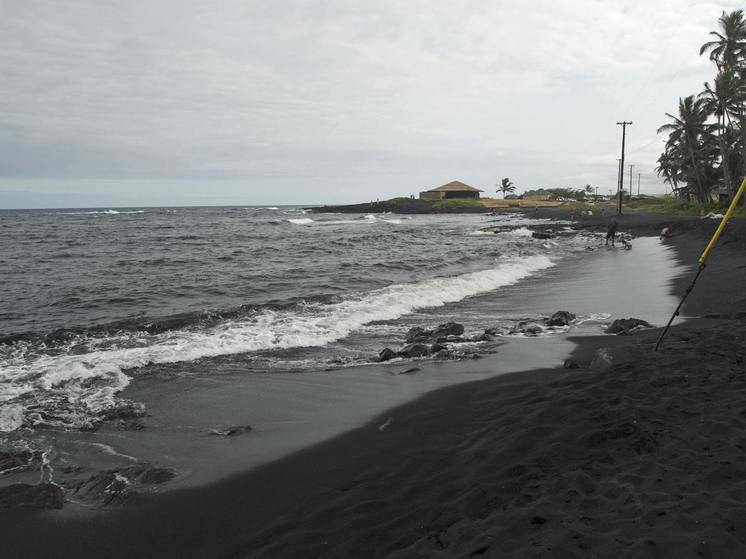Islands swallowed by the ocean are located on an underwater mountain
Scientists have discovered lost islands that sank off the coast of the Canary Islands millions of years ago, and claim that they could have served as a source of inspiration for the famous ancient legend of Atlantis that disappeared without a trace.

Atlantis is perhaps the most famous fictional island in the world, described by the Greek philosopher Plato 2,300 years ago, the Daily Mail reports. But Spanish researchers claim to have found the source of his inspiration – a series of sunken islands off the northwest coast of Africa.
The former landmasses were close to today's Canary Islands, but experts believe they were submerged by the ocean millions of years ago. Scientists have dubbed the now-submerged lands «Los Atlantes,» a reference to the myth of Atlantis, which the Daily Mail notes still persists to this day.
Luis Somoza, a marine geologist at the Spanish Geological Survey (IGME-CSIC), told Live Science that the islands could have been the source of the legend of Atlantis. However, Somoza and his colleagues do not specify how exactly Plato, who lived about 2,300 years ago, could have known about the islands.
The team estimates that Los Atlantes existed as islands during the Eocene epoch, between 56 and 34 million years ago. They were located, writes the Daily Mail, to the east of Lanzarote, which is one of the seven main Canary Islands located off the coast of Africa.
«They were islands in the past and they sank and they continue to sink, like the legend of Atlantis,» says Luis Somoza. «Some of us have seen that they still have their beaches.»
The team used an unmanned submarine as part of the research project, which began on June 27 and ended last week, the Daily Mail reports. The vessel examined the seabed at depths ranging from 100 to 2,500 meters. The unmanned submarine used high-resolution cameras, robotic arms to take samples from the seabed, and sensors to measure the content of gases such as CO2 and methane in the water.
Today, the Los Atlantes site is covered with abundant life, the researchers say, from gardens of corals and sponges to areas covered in «bacterial mats» — multilayered layers of microorganisms.
The islands sit on a massive «seamount» with steep sides rising from the sea floor, which is home to three dormant volcanoes. The seamount is about 50km in diameter and its base is about 2.3km below the ocean surface, the Daily Mail reports. The islands may have sunk when the volcanoes stopped erupting and the lava hardened and became denser.
Land sinking to the seabed is not unusual, the Daily Mail notes. The same Britain is also surrounded by former islands and coastal areas that are now under water, many of which have sunk due to weather events. One such site is Ravenser Odd, a short-lived medieval town on an island in the Humber estuary that has been called the «Atlantis of Yorkshire». Although there is no doubt that many of them existed, judging by modern records, the same cannot be said about Atlantis, the Daily Mail expresses skepticism. It is generally accepted that the story of Atlantis was first told 2,300 years ago by the Greek philosopher Plato, who invented it, but some history buffs insist that it actually existed. One theory about where the lost civilization went is that Atlantis was absorbed into the Bermuda Triangle. A stretch of the Atlantic Ocean, also known as the Devil's Triangle, has become an “urban legend” after more than 50 ships and 20 planes went missing in the area, the publication recalls. According to another version, Atlantis was destroyed as a result of a natural disaster such as a massive flood, earthquake or volcanic eruption.
Another research team recently announced that it had discovered the German equivalent of Atlantis — the city of Rungholt, which was flooded by a storm in 1362.

